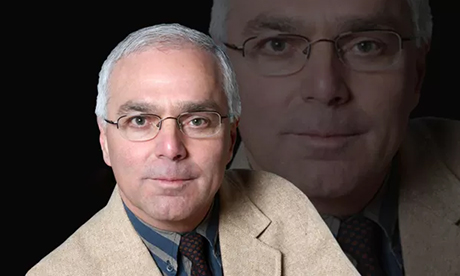On the 11th hour, of the 11th day, of the 11th month in 1918 an armistice was declared, effectively ending one of the worst conflicts in history – World War I.
On Nov. 11 the United States, the United Kingdom, New Zealand and several other nations will observe the 100th anniversary of that historic day when the warring nations of the world finally stopped all the killing, injury and destruction which filled the years between 1914 and 1918.
On Dec. 7, 1914 Pope Benedict XV pleaded with the warring parties to observe a Christmas truce.
He asked, “that the guns may fall silent at least upon the night the angels sang.”
He was hoping that such a truce would lead to sincere peace negotiations.
Tragically, his plea was officially ignored.
But on Christmas, opposing soldiers along various spots on the Western Front inspiringly declared their own unofficial truce.
And a courageous Catholic American, Ben Salmon, walking in the footsteps of the nonviolent Jesus, refused to kill.
He was sentenced to death, which was later commuted to a lengthy prison sentence of hard labour.
War – for what purpose
World War I caused over 8 million military deaths.
The civilian death toll was even worse at approximately 13 million – largely due to starvation, exposure, disease, military encounters and massacres.
World War I – “the war to end all wars” – instead became a precursor to the even more horrible World War II – the worst war in human history – and scores of wars since ever since.
Honestly, for what?
And the veterans who survive wars very often come home with serious physical, mental and spiritual wounds.
Why do Christians allow our government to put them in harm’s way?
Shouldn’t followers of the nonviolent Jesus demand an end to this sacrilege – the sacrilege of war and war preparation?
Adequately taking care of veterans’ needs, like mental and physical health care and housing, is a moral imperative that demands much more funding.
Deemphasise nationalistic fervour
But for the sake of helping create a culture which opposes war and war preparation, a culture which decries sending more young men and women into one senseless war after another, we need to deemphasise the nationalistic fervour associated with Veterans Day, similarly observed as Remembrance Day in the British Commonwealth, and instead recapture the prayerful and peaceful meaning that was central to what this day was originally called: Armistice Day.
In a June 4, 1926 congressional resolution officially recognizing the end of World War I, Congress declared that the recurring anniversary of the day when hostilities ceased “should be commemorated with thanksgiving and prayer and exercises designed to perpetuate peace through good will and mutual understanding between nations.”
On Nov. 11, Armistice Day, let’s say no to more war, and demand justice and peace at home and abroad.
- Tony Magliano is an internationally syndicated social justice and peace columnist. He is available to speak at diocesan or parish gatherings. Tony can be reached at tmag@zoominternet.net.
News category: Analysis and Comment.




